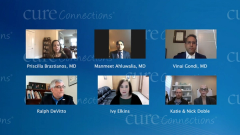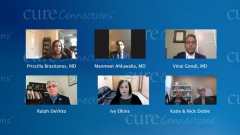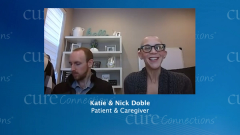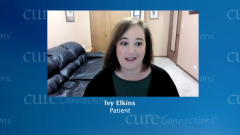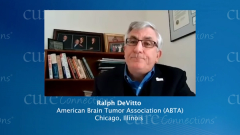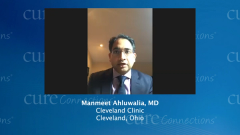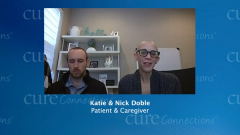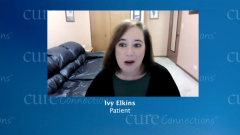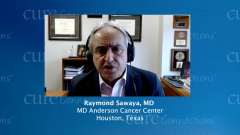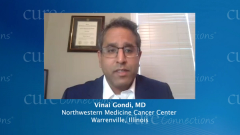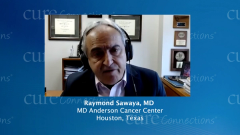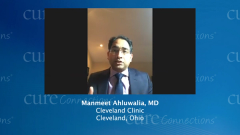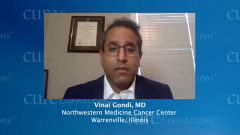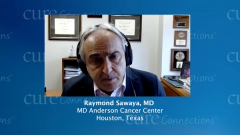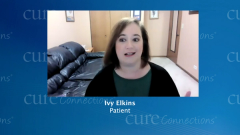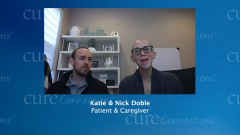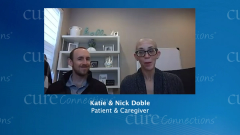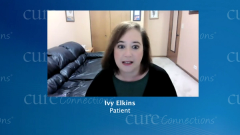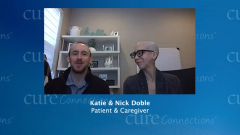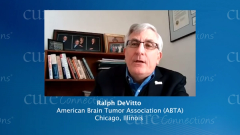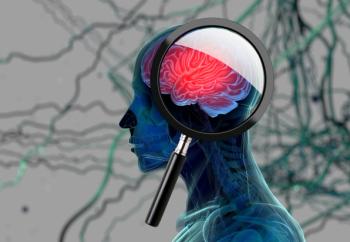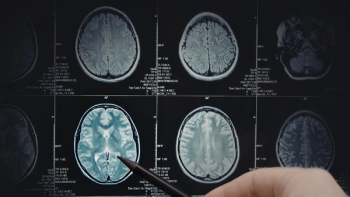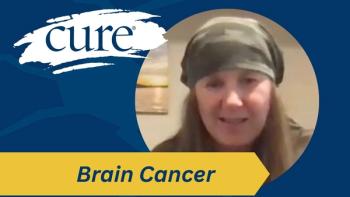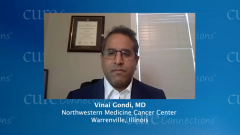
Feeling Supported During the Diagnosis and Treatment of Brain Metastases
Episodes in this series

Priscilla Brastianos, MD: Ivy and Katie, do you feel supported during your treatment by your medical team, your loved ones? You’ve already answered the question, that you both have amazing support networks. But tell us more about whether you feel supported by the community around you?
Ivy Elkins: Yes, I really do feel supported. My oncologist and her staff are absolutely fantastic and if I have any questions, I know exactly how to reach out and get answers. I have a great group of friends here in my community who, along with me, have learned a lot about lung cancer over the past seven years, including the fact that anyone can get lung cancer, you just need to have lungs, which none of us knew before I was diagnosed.
I would say that I feel very supported by pretty much everyone in my life, and I am very grateful for that. Like Katie said before, I too feel that having cancer has changed my life. I also focus more on the present and try not to sweat the little things. It’s even changed my whole career focus because I’m a full-time patient advocate now, and I help others. It really has changed my life in many ways, and as a result of having had good support myself, I feel that I can support other people and help advocate for them as well.
Priscilla Brastianos, MD: Both of your stories are so moving, I have to say. Nick, you’ve been waiting patiently, thank you. Let’s turn our attention now to you as a caregiver. Again, thank you so much for joining us today and for being so supportive of Katie. How much of an effect did you have on treatment decision-making through this whole process?
Nick Doble: Thanks for inviting me to speak today and to represent caregivers and to share our story and my story. Treatment diagnosis, I think Katie explained a little bit about it. It happened quickly when it spread to the brain. I was at work when she had a lot of the calls with the doctors and the results were shared and pieces like that. We knew that there were problems going on, so I was relieved that we’d found what the situation was. We had a lot of trust in the oncologist as well. I think building rapport is very important and we had that trust in him, Dr. Gonzalez. It really helped when he said, “Hey, this is what we’re going to be doing and why we’re going to be doing it, and we need to move quickly to do this.” For me, I felt at ease, that, OK, there’s a brain tumor, but here’s the next step with that.
Also, we’re very lucky to have Katie’s dad, who is a doctor. She refers to him as her agent in this as well. He’s always a good person to reference to and see how he is responding and reacting to what we’re doing. I can tell if he’s looking for different options, whether he’s worried about it as well. I feel if he’s like, “Yes, that’s fine, we’re going to do this,” then obviously that reassures me, and then I can focus on supporting Katie, too.
Priscilla Brastianos, MD: Do you discuss your concerns or beliefs with Katie and the medical team?
Nick Doble: When the question comes, “Are there any questions?” I feel like it’s always open for me to chip in, and if it’s not open, I just chip in. I don’t think it’s often asked specifically to the caregiver, or in my experience, a lot of the time not. It’s normally to the patient, what are the patient’s questions, and the caregiver has to take that backseat while the patient goes through a lot of personal things that are going on with them. It’s very much related to the patient. But I do have a lot of questions, I have an analytical mind. I think what Ivy said is true, sometimes there can be a lot of information. Even as a caregiver, and I like to think I’m very detailed, I miss things as well, so it’s great to have that support. We both talk about what happens after meetings as well.
Priscilla Brastianos, MD: Do you feel like you have enough support as a caregiver, and as a medical field, do you think we could do better in supporting caregivers?
Nick Doble: I don’t feel that supported by the medical field, to be honest. There’s a charitable organization, First Descents, that has helped support caregivers who are part of that charity. Getting people outdoors and living in the outdoors is very much a part of what they do. They had a caregiver “Rock program,” they called it, where we went rock climbing with 16 other caregivers from multiple different cancer diagnoses and treatments and where their partners were. For caregivers, that was a very big resource. But I don’t think, in the medical field, I’ve ever had anyone say, “How are you really doing; what resources can we offer to you?” Even when we recently had TIL [tumor-infiltrating lymphocyte] treatment, there wasn’t too much of a focus on the caregiver. I think that’s something that needs to be developed because we do have an impact on helping the patient, and we’re going through a lot at the same time. Helping us to be in a better situation to help the patient really helps.
I always go back to Kate’s diagnosis for brain cancer when it metastasized, and I was telling her, “Oh, you’re probably just dehydrated.” I didn’t think there could be other scenarios going on and feel quite guilty about that. Perhaps if I was educated more, it would have been like, “Well, maybe we should check in with your doctor.” We should report this to your doctor earlier than having to wait for the week after, and then go do the scan and then the doctor says, “Actually, there could be an issue here.” I think there’s a lot of room to help caregivers to be a better support function to patients. I try my best now to advocate after we just had TIL and say, “Maybe you should report that to your doctor. Have you told your doctor about that?” I think stating those expectations and talking openly with a caregiver very much benefits us and also makes us feel heard and valued at the same time.
Priscilla Brastianos, MD: Thanks so much for sharing that, being so open about that. I think what resonates here is that number one, we do need to do better in supporting caregivers and there needs to be more resources. There is, I think, more interest in that in the field, which is important. Even now, there are data coming out during COVID-19 [coronavirus disease 2019], that there’s a lot of caregiver burnout, caregiver fatigue, and not enough resources. I do think you highlight something that’s really important. The other thing you highlighted is that we need to be better about educating not just patients, but their caregivers, about what kind of things to look out for, and how to best help patients. Thank you for sharing that with us.
Transcript Edited for Clarity

